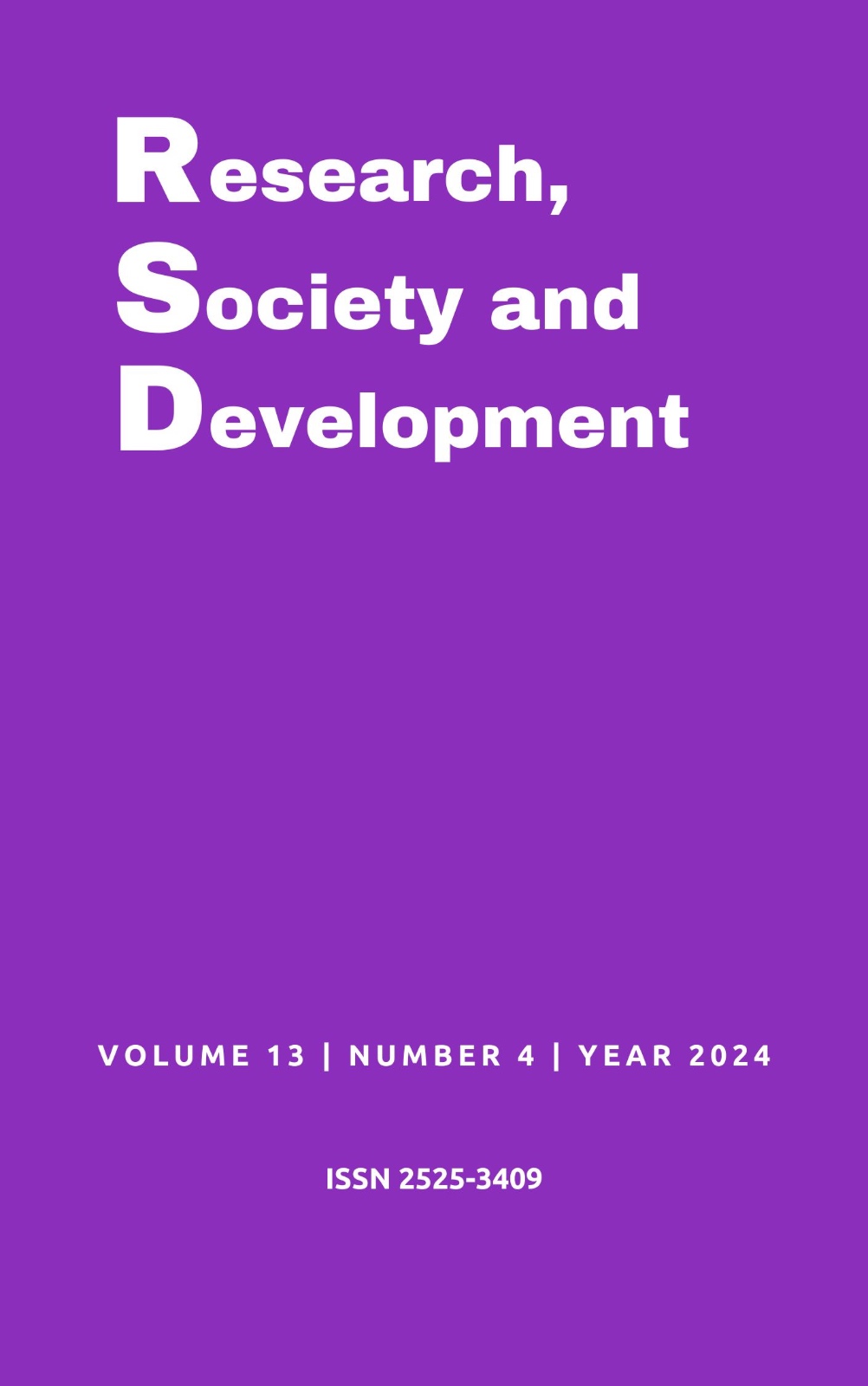Terapia assistida com 3,4-metilenodioximetanfetamina (MDMA) para o tratamento da ansiedade social em adultos autistas
DOI:
https://doi.org/10.33448/rsd-v13i4.44932Palavras-chave:
MDMA, Autismo, Ansiedade social.Resumo
O transtorno do espectro autista é uma condição no neurodesenvolvimento que causa déficits na interação interpessoal e na comunicação do indivíduo, podendo levar ao desenvolvimento da ansiedade social. A inexistência de um tratamento farmacológico eficaz e com efeitos colaterais reduzidos, tem atraído a atenção dos pesquisadores para o tratamento com abordagens alternativas. O 3,4-metilenodioximetanfetamina (MDMA) é um composto ativo sintetizado, encontrado no Ecstasy, capaz de produzir uma grande sensação de afeto e intenções pró-sociais, aumentando a liberação de serotonina, dopamina e ocitocina, facilitando o processo de interação social. O objetivo deste artigo foi informar, através de um levantamento bibliográfico, sobre a história da pesquisa clínica com psicodélicos, em especial o MDMA, sua influência no tratamento da ansiedade social em adultos com transtorno do espectro autista e estimular estudos futuros com essas substâncias. Realizou-se revisão bibliográfica de escopo de 1986 até 2023 por meio do Pubmed e SciELO. Descreveram-se o contexto histórico e a farmacologia do MDMA, assim como a sua importância e interação na ansiedade social de adultos com autismo. O mecanismo de ação foi relatado a fim de justificar as possibilidades terapêuticas associadas ao uso do MDMA. Como resultado, foram obtidos dados de melhoras significativas nos sintomas da ansiedade social nos indivíduos dos estudos, e a sua prescrição foi autorizada na Austrália para o tratamento do Transtorno do Estresse Pós-Traumático, se tornando bastante promissor na busca de um medicamento eficaz para o tratamento da ansiedade social em portadores do transtorno do espectro autista.
Referências
APA. (2013). DSM-5 Task Force. Diagnostic and statistical manual of mental disorders: DSM-5™ (5th ed.). American Psychiatric Publishing, Inc. https://doi.org/10.1176/appi.books.9780890425596
Australian Goverment. (2023). Change to classification of psilocybin and MDMA to enable prescribing by authorised psychiatrists. Department of Health and Aged Care, Therapeutic Goods Administration (TGA). https://www.tga.gov.au/news/media-releases/change-classification-psilocybin-and-mdma-enable-prescribing-authorised-psychiatrists
Baumann, M. H., Wang, X., & Rothman, R. B. (2006). 3,4-Methylenedioxymethamphetamine (MDMA) neurotoxicity in rats: a reappraisal of past and present findings. Psychopharmacology, 189(4), 407–424. https://doi.org/10.1007/s00213-006-0322-6
Bedi, G., K. Luan Phan, Angstadt, M., & Harriet de Wit. (2009). Effects of MDMA on sociability and neural response to social threat and social reward. Psychopharmacology, 207(1), 73–83. https://doi.org/10.1007/s00213-009-1635-z
Bejerot, S., Eriksson, J., & Mörtberg, E. (2014). Social anxiety in adult autism spectrum disorder. Psychiatry Research, 220(1-2), 705–707. https://doi.org/10.1016/j.psychres.2014.08.030
Capadócia, MC, Weiss, JA & Pepler, D. (2012) Experiências de bullying entre crianças e jovens com transtornos do espectro do autismo. J Autismo Dev Disord 42, 266–277. https://doi.org/10.1007/s10803-011-1241-x
Cordeiro, L. & Soares, C. B. (2019). Revisão de escopo: potencialidades para a síntese de metodologias utilizadas em pesquisa primária qualitativa. Bis. 20(2), 37-43. https://docs.bvsalud.org/biblioref/2019/10/1021863/bis-v20n2-sintese-de-evidencias-qualitativas-37-43.pdf
Danforth, Alicia Lynn (2013). Courage, connection, and clarity: A mixed-methods collective-case study of MDMA (ecstasy) experiences of autistic adults. Institute of Transpersonal Psychology ProQuest Dissertations Publishing. 3596826.
Danforth, A. L., Grob, C. S., Struble, C. M., Feduccia, A. A., Walker, N., Jerome, L., Berra Yazar‐Klosinski, & Emerson, A. (2018). Reduction in social anxiety after MDMA-assisted psychotherapy with autistic adults: a randomized, double-blind, placebo-controlled pilot study. Psychopharmacology, 235(11), 3137–3148. https://doi.org/10.1007/s00213-018-5010-9
Danforth, Alicia Lynn (2019). Embracing Neurodiversity in Psychedelic Science: A Mixed-Methods Inquiry into the MDMA Experiences of Autistic Adults. Journal of Psychoactive Drugs, 51:2, 146-154, DOI: 10.1080/02791072.2019.1587116
Feduccia, A. A., Jerome, L., Berra Yazar‐Klosinski, Emerson, A., Mithoefer, M. C., & Doblin, R. (2019). Breakthrough for Trauma Treatment: Safety and Efficacy of MDMA-Assisted Psychotherapy Compared to Paroxetine and Sertraline. Frontiers in Psychiatry, 10. https://doi.org/10.3389/fpsyt.2019.00650
Freudenmann, R. W., Florian Öxler, & Bernschneider-Reif, S. (2006). The origin of MDMA (ecstasy) revisited: the true story reconstructed from the original documents. Addiction, 101(9), 1241–1245. https://doi.org/10.1111/j.1360-0443.2006.01511.x
Grob, C. S., Poland, R. E., Chang, L., & Ernst, T. (1995). Psychobiologic effects of 3,4-methylenedioxymethamphetamine in humans: methodological considerations and preliminary observations. Behavioural Brain Research, 73(1-2), 103–107. https://doi.org/10.1016/0166-4328(96)00078-2
Mayo‐Wilson, E., Dias, S., Ifigeneia Mavranezouli, Kew, K. M., Clark, D. M., Ades, A. E., & Pilling, S. (2014). Psychological and pharmacological interventions for social anxiety disorder in adults: a systematic review and network meta-analysis. The Lancet Psychiatry, 1(5), 368–376. https://doi.org/10.1016/s2215-0366(14)70329-3
Niles, A. N., Burklund, L. J., Arch, J. J., Lieberman, M. D., Saxbe, D., & Craske, M. G. (2014). Cognitive Mediators of Treatment for Social Anxiety Disorder: Comparing Acceptance and Commitment Therapy and Cognitive-Behavioral Therapy. Behavior Therapy, 45(5), 664–677. https://doi.org/10.1016/j.beth.2014.04.006
Pollan, M. (2018). How to change your mind: what the new science of psychedelics teaches us about consciousness, dying, addiction, depression, and transcendence. Penguin Press.
Reardon, S. (2023). US could soon approve MDMA therapy — opening an era of psychedelic medicine. Nature, 616(7957), 428–430. https://doi.org/10.1038/d41586-023-01296-3
Thompson, M. R., Hunt, G. E., & McGregor, I. S. (2009). Neural correlates of MDMA (“Ecstasy”)-induced social interaction in rats. Social Neuroscience, 4(1), 60–72. https://doi.org/10.1080/17470910802045042
Williams, T., Coenraad Hattingh, Kariuki, C. M., Tromp, S., A.J.L.M. van Balkom, Ipser, J., & Stein, D. J. (2017). Pharmacotherapy for social anxiety disorder (SAnD). The Cochrane Library, 2019(1). https://doi.org/10.1002/14651858.cd001206.pub3
Downloads
Publicado
Edição
Seção
Licença
Copyright (c) 2024 Jéssica de Sá Azevedo; Aline da Silva Guerra

Este trabalho está licenciado sob uma licença Creative Commons Attribution 4.0 International License.
Autores que publicam nesta revista concordam com os seguintes termos:
1) Autores mantém os direitos autorais e concedem à revista o direito de primeira publicação, com o trabalho simultaneamente licenciado sob a Licença Creative Commons Attribution que permite o compartilhamento do trabalho com reconhecimento da autoria e publicação inicial nesta revista.
2) Autores têm autorização para assumir contratos adicionais separadamente, para distribuição não-exclusiva da versão do trabalho publicada nesta revista (ex.: publicar em repositório institucional ou como capítulo de livro), com reconhecimento de autoria e publicação inicial nesta revista.
3) Autores têm permissão e são estimulados a publicar e distribuir seu trabalho online (ex.: em repositórios institucionais ou na sua página pessoal) a qualquer ponto antes ou durante o processo editorial, já que isso pode gerar alterações produtivas, bem como aumentar o impacto e a citação do trabalho publicado.


